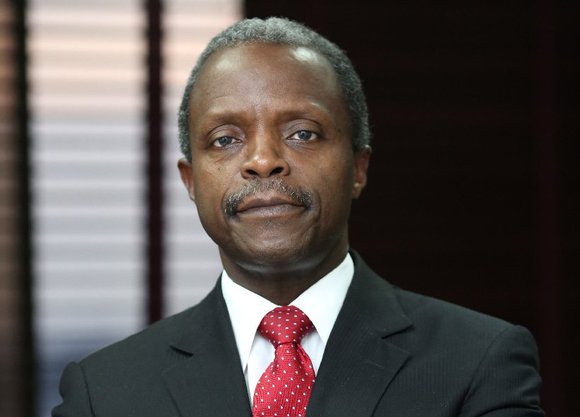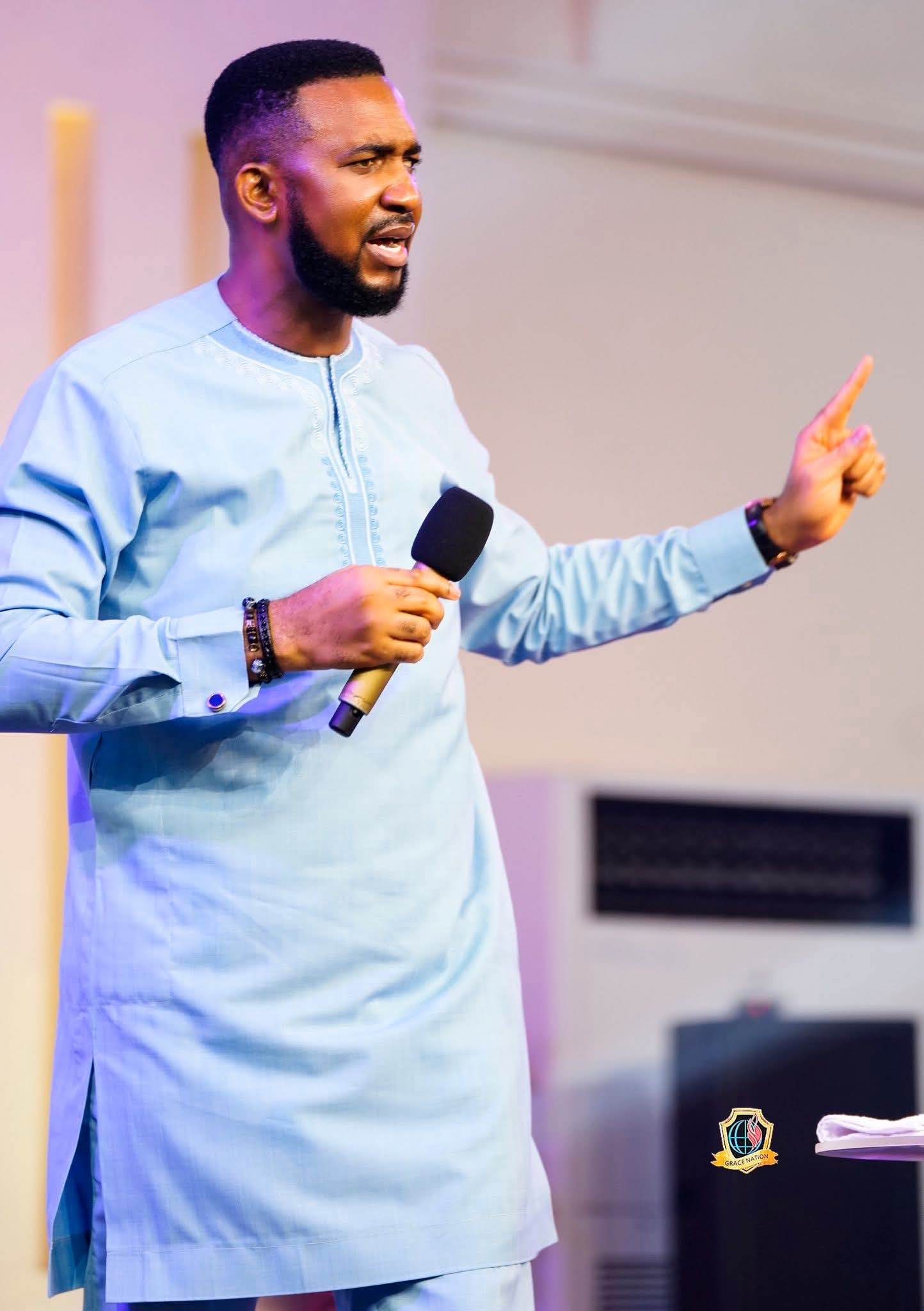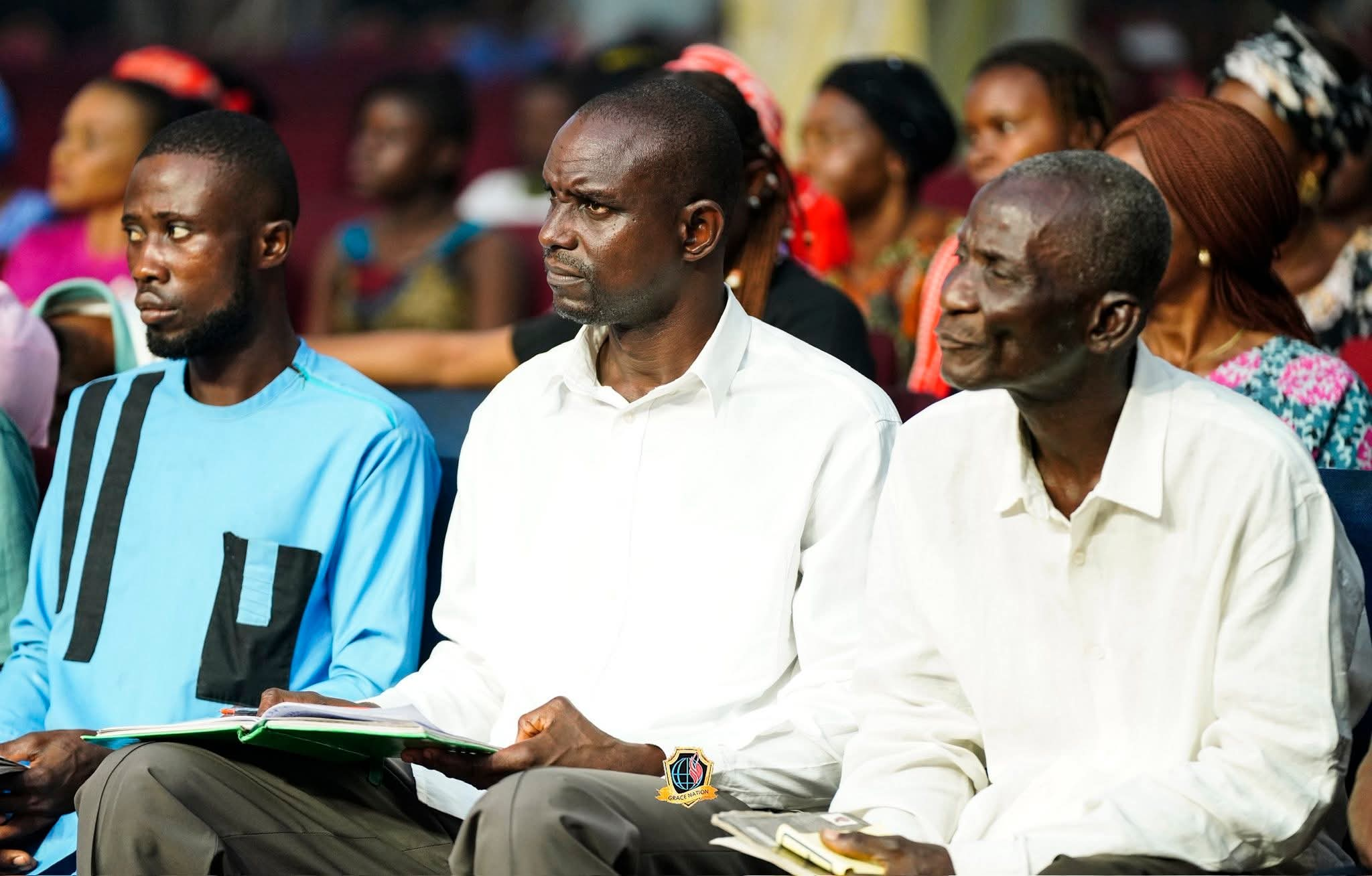celebrity radar - gossips
Human Security and Osinbajo State Police Thesis By Jimoh Ibrahim CFR

Human Security and Osinbajo State Police Thesis
By Jimoh Ibrahim CFR
Osinbajo, at 64, Nigeria Vice President a Professor without a Ph.D. degree, must have come ahead of his age in the contemporary times of intellectual politics. In the few years to come, he will be out of politics, not out of the political system. He will be remembered for his thesis on human Security and the phenomenon of the state police.
Yes, Osinbajo may not achieve his desire for the state police for now. The government’s mathematical algebra characteristics (he is part of) and the irredeemable political strategy of individual self-esteem playing high in the face of human insecurity is one obstacle he may not overcome in the present time.
Osinbajo’s thesis is clear that state police will be fostering human Security and bring about much-needed peace for humanity. Osinbajo reacting to the elementary questions for students of Security in international relations who will usually debate: Security for in (or of) what, security from what, Security for what, and Security by what means?
Distilling those questions to an appropriate analysis will surely propel an answer that suggests a decentralising policing system in the converging federation of dotted ethnicity and scattered jurisdiction of an incredible human accident of one federation demanding for (golden) national unity. Suppose Osinbajo did not achieve the desire of his thesis now. In that case, it is too confident that at one time in the point of need. Nigeria (I predict will be begging for intellectuals to lead the government) in the face of the dangerous political lane, Osinbajo thesis will be a new strategy to go in a contemporary Nigeria (I mean the desire for state police).
The value for Security in the present time is indispensable considering the state of insecurity in Baghdad, Beirut, Gaza, Mogadishu, Grozny, Belfast. Again no one will forget so soon September 11 attack on the World Trade Center or the July 7 bombings on the London Underground or the not too far away from us the Boko Haram insurgency and the Nigeria military counterinsurgency. Or the state of insecurity passed on to us by the amalgamation of 1914 or the not too long after the Nigeria independence- the civil war of the Biafra nation attempt to secede from the circumstantial British inevitable federation of Nigeria. In all, there is enough for Osinbajo to be worried about.
Trajectorially, Thomas Hobbes reacted to the nature of Man in the state of nature. And, the desire for safety and peace necessitation the control of man by the leviathan. ‘there is no place for industry… no arts, no letters, no society; and which is worst of all, continual fear, and danger of violent death; and the life of man, solitary, poor, nasty, brutish, and short’. I have reacted to Thomas Hobbes in the introduction chapter of my second Ph.D. thesis on Modern war.
I said, “A New war emerging in the face of the Nigerian leviathan’s undermined man’s dignity contrary to Hobbesian assertions—the Nigerian government’s failure to provide public goods to the emergence of the Boko Haram insurgency. The citizens contest their rights to life (now in danger), withdrawing their loyalty and support from the government and the armed forces. A praxis leads to a power shift from the state to the identified local group (Boko Haram), now defending their ethnic territory resulting in continuous violence between soldiers and civilians with mass civilian casualties, genocide, systemic rape, and unquantifiable property destruction fostering human insecurity. I further expressed the fear that: The experiences of clans, tribal groups, fractions, nations, and profit-seekers attempt to secede are noticeable from Tamils in Sri Lanker and Russian in East Ukraine.
Insurgency gaining control to power (Angola and Mozambique) or new wars arising from acquiring or having access to lucrative materials/ resources (Syria and Iraq) are comparative studies that strengthen the Nigerian insecurity dilemmas and may explain Osinbajo desire for state police.
If we secure individuals, we secure the state and the international geo-centric family. If we undermined the Security of one individual, we put the state’s peace at risk, and we invite war of the global system. We are venerable in modern times to think of anything in government more than Security. It is not the war of the missies’ attack of the common exchange of outdated AKA47, but there is a modern threat to Security that stays with us here daily, creating such challenges beyond our imagination. We already left the days of Tudor, Valois, Bourbon, Hapsburg, Wittelsbach, Hohenzollern, Savoy, Romanov, and so forth or the great dynastic families of Europe where the hegemon celebrate their martial rex est imperator in regno suo – ‘the king is emperor in his own realm’ the hegemon is not secure in the modern days if individual Security is compromised, the state have no rest in the face of abuse of human freedom and international war is echoing if human abuse is undermined. We do not know if the war will meet us in peace or we find peace after the war. If we act fast, it is in our interest to enjoy peace, and we cannot be policing from far away.
Osinbajo fear is the Conversely the withdrawal of popular legitimacy when state profile reads red signal in security language, i.e., when states cannot satisfy these essential criteria, their statehood becomes suspect. States may fail when rival actors such as warlords or popular militias usurp some of their governmental powers, notably the monopoly of force. And with high crime rates, extreme corruption, a robust ‘black (unregulated) market,’ judicial ineffectiveness, military interference in politics, or cultural situations. Traditional leaders have more authority than the state in a particular area of competency or regional jurisdiction. Or summary, the inevitable institutional void converging, we may not travel too long to see. Domestic circumstances in the Democratic Republic of the Congo, Somalia, Sierra Leone, and Sudan have in recent years all been characterized by conditions of armed conflict, famine, disease, and refugees.
Consequently, these are widely acknowledged to be ‘failed states. And Nigeria inclusive (God forbid and as I do know Osinbajo praying in the redeemed church praxis) that Nigeria end in such a game plan. Again, about 2 billion people live in insecure states, with varying degrees of vulnerability to widespread civil conflict. In other words, for somewhere in the region of 2 billion men, women and children worldwide, national Security has failed to guarantee personal Security. This statistic is a damning indictment of the national security paradigm.
Our lovely Vice President, I know that Crystal champagne will not flow at your birthday celebration today, after a lot of fasting and in the lent period. Still, I bring greetings from my bachelor’s degree cohort at the London School of Economics and Political Science (LSE) International Relations Department. I wish you many happy returns.
Jimoh Ibrahim CFR is the Chief Executive Officer, Global Fleet and writes from London
celebrity radar - gossips
E‑Money’s Grand Gesture: A Closer Look at the SUV Gift to Chinedu “Aki” Ikedieze

E‑Money’s Grand Gesture: A Closer Look at the SUV Gift to Chinedu “Aki” Ikedieze
By George Omagbemi Sylvester | Published by SaharaWeeklyNG
“Public Generosity, Celebrity Loyalty and the Symbolism of Wealth in Nigeria’s Entertainment Elite.”
On Tuesday, February 17, 2026, Nigerian billionaire and entrepreneur Emeka Okonkwo, widely known as E‑Money, once again captured national attention with a lavish and highly publicised act of generosity, gifting a brand‑new 2024/2025 Ford SUV to veteran Nollywood actor Chinedu Ikedieze, affectionately called Aki, during his high‑profile birthday celebration.
The event, held in Lagos amidst a constellation of entertainers, business figures and socialites, was itself part of an annual tradition in which E‑Money marks his birthday (on February 18) with large‑scale giveaways and spectacular shows of material philanthropy. This year, he announced the gift of over 30 cars to friends, staff and family, a gesture that quickly went viral as videos and images circulated across social media platforms.
In the case of Ikedieze, E‑Money’s gift appeared to be deeply personal. During the festivities, E‑Money stood beside his elder brother, Grammy‑nominated musician KCee and recounted how Ikedieze stood by him at his 2007 wedding. The billionaire explained that the SUV was a “token of appreciation” for the enduring support the actor had shown over the years which is a narrative that blends friendship with public celebration.
Ikedieze, a Nollywood staple with a career spanning more than two decades and over 150 film credits, including the iconic Aki na Ukwa franchise, visibly reacted with humble surprise as he received the vehicle, bowing his head in respect and gratitude. The actor later shared the moment on his Instagram account with a caption celebrating the gift, further fuelling online engagement around the event.
Beyond the spectacle, this incident underscores evolving dynamics in Nigerian celebrity culture and the intersection of wealth, influence and reciprocity. Sociologist Dr. Chinedum Uche of the University of Lagos, speaking on the broader implications of such high‑profile gifts, notes: “Philanthropy that is highly publicised can reinforce social bonds, but it also reflects a culture where generosity is intertwined with reputation economy; where giving becomes as much a social signal as it is an act of kindness.” The quote highlights how public acts of wealth transfer among elites serve layered social functions that extend beyond pure altruism.
Critics of such displays argue that ostentatious giveaways, particularly in a country with stark economic disparities, risk amplifying social envy and exacerbating perceptions of inequality. Economist Dr. Ifunanya Nwosu from the Lagos Business School observes: “In societies marked by economic stratification, celebrity largesse may inspire admiration, but it can also inadvertently highlight structural inequities; prompting questions about systemic investment in public welfare versus individual generosity.”
Still, supporters maintain that E‑Money’s annual tradition (which has in past years included cash gifts to his brother KCee, comedians and even domestic staff) reflects genuine gratitude and a commitment to uplifting his immediate circle, albeit within the private sphere.
For Ikedieze, the SUV stands both as a heartfelt gesture from a longtime friend and a public affirmation of their enduring relationship. As the video of the moment continues to circulate, the broader narrative has ignited discussions about the role of private wealth in public life, celebrity culture and how acts of giving are interpreted in contemporary Nigerian society.
In a landscape where influence and generosity often play out in equal measure on public stages, E‑Money’s gift to Aki is more than a headline, it is a flashpoint in ongoing debates about wealth, friendship and visibility in Nigeria’s entertainment and entrepreneurial ecosystem.
celebrity radar - gossips
Spiritual Reality: Wicked People Are Possessed by Wicked Spirits — Dr. Christian Okafor

Spiritual Reality: Wicked People Are
Possessed by Wicked Spirits — Dr. Christian Okafor
…..“You don’t need to offend them before they attack you.”
…..“Your only true help comes from God.”
Demons are strategic and calculating. They detect threats quickly and position themselves to resist any power that may expose or overpower them.
According to the Generational Prophet and Senior Pastor of Grace Nation Global, Christian Okafor, spiritual intelligence operates both in light and in darkness—and believers must understand this reality.
Dr. Okafor delivered this message on Thursday, February 19, 2026, during the midweek Prophetic, Healing, Deliverance and Solutions Service (PHDS) held at the international headquarters of Grace Nation Worldwide in Ojodu Berger, Lagos, Nigeria.
The Operations of Demons
Teaching on the subject “Spiritual Reality” with the subtitle “Operations of Demons,” the Man of God explained that when demons possess individuals, their behavior changes. Such people may attack, bully, or resist those sent by God to help them, unknowingly rejecting divine assistance and prolonging their struggles.
“You don’t need to offend a demon before it attacks you,” he said. “What you carry is enough to provoke opposition. The greater your potential, the greater the battle.”
Dr. Okafor noted that many believers misinterpret battles as signs that God has abandoned them. However, he explained that some battles are permitted for growth, training, and divine glorification.
According to him, God may allow certain confrontations so that believers understand spiritual warfare and emerge stronger.
“Some battles are necessary,” he emphasized. “They push you into your turning point.”
He further stated that God does not respond to lies, blackmail, or bullying. He responds to His Word. Therefore, opposition is not proof of God’s absence, but often evidence of destiny at work.
The Weapon Against Demonic Attacks
Addressing solutions, Dr. Okafor described prayer as the strongest weapon against satanic operations.
“Prayer is the license that invites God into your battles,” he declared. “God does not intrude—He responds to invitation.”
According to the Apostle of Altars, understanding the principles and discipline of prayer enables believers to receive divine strategies for overcoming demonic resistance. Without prayer, he warned, spiritual help cannot be activated.
“You cannot receive help without God,” he concluded. “And you cannot engage God without prayer.”
Manifestations at the Service
The midweek gathering was marked by a strong move of the Spirit, with testimonies of deliverance, miracles, restoration, and solutions to various challenges presented before God. Several individuals reportedly committed their lives to Christ during the service.
celebrity radar - gossips
Kingdom Advancement: God Does Not Confirm Lies or Gossip — He Confirms His Word .” — Dr. Chris Okafor

Kingdom Advancement: God Does Not Confirm Lies or Gossip—He Confirms His Word
“When Doing Business with God,
People’s Opinions Do Not Count.”
— Dr. Christian Okafor
The greatest investment any Christian can make is partnering with God. According to the Generational Prophet of God and Senior Pastor of Grace Nation Global, Christopher Okafor, when a believer commits to serving and advancing God’s kingdom, no barrier, lie, gossip, or blackmail can prevail against them.
This message was delivered during the Prophetic Financial Sunday Service held on February 15, 2026, at the international headquarters of Grace Nation Worldwide in Ojodu Berger, Lagos, Nigeria.
Doing Business with God
Teaching on the theme “Kingdom Advancement” with the subtitle “Doing Business with God,” Dr. Okafor emphasized that when a believer enters into covenant partnership with God, divine backing becomes inevitable.
“God is still in the business of covenant,” he declared. “When you make a covenant with Him, He honors the terms. When you win souls into the kingdom and remain committed to His work, He rewards you with what you could never achieve by your own strength.”
The Man of God stressed that God does not confirm lies, gossip, or negative narratives—He confirms His Word. Therefore, anyone genuinely committed to kingdom business should not be distracted by public opinion.
“No matter the blackmail or falsehood circulating around you, if you are focused on God’s assignment, those attacks will only strengthen you,” he stated.
He further noted that a believer’s understanding of God’s covenant determines their experience. “Your mentality about God’s covenant becomes your reality. When you truly know the God you serve, no devil can move you.”
Biblical Examples of Kingdom Partnership
Dr. Okafor cited several biblical figures who prospered through their partnership with God:
Abel
Abel served God with sincerity and offered his very best. His sacrifice pleased God, demonstrating that when a master is honored, he responds with favor.
David
David’s heart was fully devoted to God, and in return, God’s presence and favor rested upon him throughout his life.
Hannah
Hannah made a covenant with God, promising that if He blessed her with a child, she would dedicate him to His service. After fulfilling her vow, God rewarded her abundantly, blessing her with additional children.
Peter
Peter, a professional fisherman, surrendered his boat at Jesus’ request for kingdom work. Through that act of partnership and obedience, he experienced supernatural provision and divine elevation.
Conclusion
In closing, Dr. Okafor emphasized that one’s approach to God’s covenant determines the level of success and prosperity experienced. Commitment to kingdom advancement secures divine confirmation and supernatural results.
The Prophetic Financial Sunday Service was marked by prophetic declarations, deliverance, healings, miracles, restoration, and solutions to diverse cases presented before Elohim.
-

 celebrity radar - gossips6 months ago
celebrity radar - gossips6 months agoWhy Babangida’s Hilltop Home Became Nigeria’s Political “Mecca”
-

 society6 months ago
society6 months agoPower is a Loan, Not a Possession: The Sacred Duty of Planting People
-

 society5 months ago
society5 months agoReligion: Africa’s Oldest Weapon of Enslavement and the Forgotten Truth
-

 news6 months ago
news6 months agoTHE APPOINTMENT OF WASIU AYINDE BY THE FEDERAL GOVERNMENT AS AN AMBASSADOR SOUNDS EMBARRASSING













